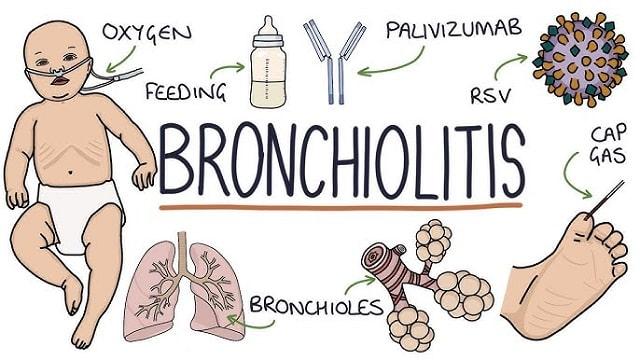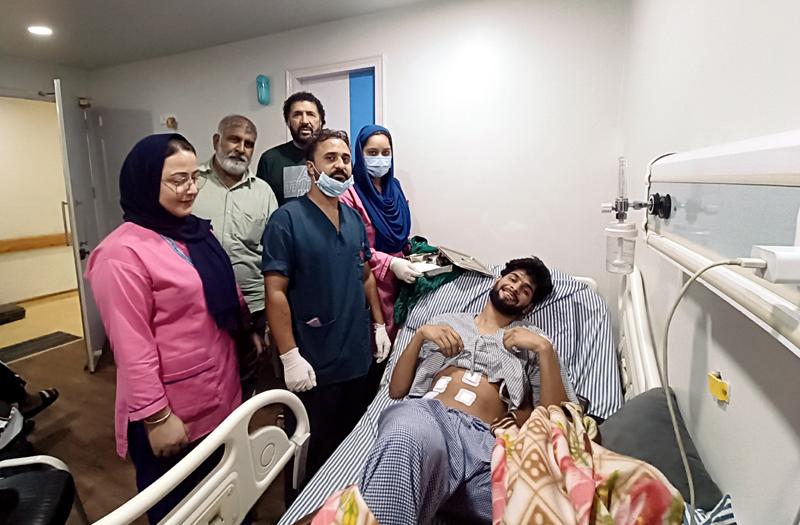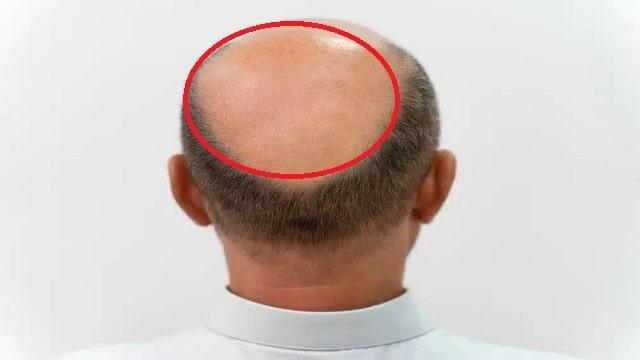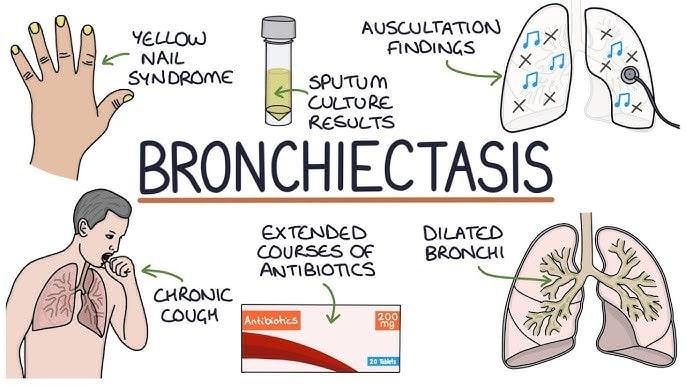
Bronchiolitis Symptoms, Risk Factors & Treatment | Diseases List A-Z
What is Bronchiolitis? Bronchiolitis is a disease that attacks the respiratory tract.
This condition is generally experienced by infants and children under the age of two.
This condition occurs due to an infection in the respiratory tract that triggers inflammation, as well as blockage of the bronchioles.
Bronchioles themselves are small respiratory tracts located in the lungs.
Infection or inflammation can be caused by several types of viruses, including flu and cold viruses.
However, the type of virus that most often causes this condition (especially in children under two years of age) is the respiratory syncytial virus (RSV).
Children usually catch the virus when they are near and exposed to droplets of saliva, from coughing or sneezing of someone with bronchiolitis.
Symptoms of Bronchiolitis This disease usually begins with symptoms similar to a cold and a mild cough.
However, after a few days, the symptoms can be accompanied by other conditions such as: Decreased appetite.
Noisy or wheezing breathing.
In most cases, bronchiolitis is mild, so the symptoms that appear are not too severe.
Symptoms of this disease usually subside in less than three weeks, without special treatment.
Risk Factors for Bronchiolitis The following are several conditions that can increase a child’s risk of developing bronchiolitis, including: Have low immunity.
Born premature.
Less than three months old.
Never breastfed.
Breastfed children have better immunity than those who are not.
Living in a densely populated area.
Frequent contact with other children.
Frequent exposure to cigarette smoke.
Have lung or heart disease.
Diagnosis of Bronchiolitis Diagnosis of bronchiolitis is done by identifying and observing the child through a physical examination.
For example, by listening to lung sounds through a stethoscope.
Not only that, the doctor can also ask whether the child has signs of dehydration, such as frequent vomiting and refusing to eat or drink.
If a child is suspected of having severe bronchiolitis, the doctor will recommend further examinations such as: Chest X-ray.
A chest X-ray is needed to see signs of pneumonia.
Viral Testing.
This test will take a sample of mucus to test for the presence of the virus that causes bronchiolitis.
The method is to insert a cotton bud slowly into the nose.
Blood Test.
This test can also be done to check the number of white blood cells in the sufferer.
This blood test is also useful to find out whether oxygen levels have decreased in the child’s bloodstream.
Bronchiolitis Treatment If a child is diagnosed with bronchiolitis, there are a number of recommended ways to treat it, such as: Give your little one plenty of rest and give him/her plenty of fluids (including breast milk and formula).
This is done to prevent dehydration.
Make your little one’s room comfortable by installing a humidifier or diffuser.
Sterilize your little one’s room from air pollution (especially cigarette smoke).
Give your little one saline drops (a solution containing salt) which can be purchased freely at the pharmacy to relieve a blocked nose.
Give a fever reducer that can be bought freely in the pharmacy if your little one has a fever, according to the dosage recommended by the doctor or the instructions for use listed on the packaging.
A fever reducer can be given to your little one after the age of more than three months.
Do not give anti-inflammatory drugs because this medicine is intended for people aged 16 years and above.
Complications of Bronchiolitis Complications often occur in severe cases of bronchiolitis.
Some examples of complications of this disease are: Dehydration.
Respiratory failure or lack of oxygen levels in the body.
Sufferers can experience cyanosis which is characterized by blue skin and lips due to lack of oxygen.
Apnea or momentary cessation of breathing.
Prevention of Bronchiolitis To minimize the risk of bronchiolitis, there are several things you can do, such as: Keep children away from people who show symptoms of the disease or other respiratory illnesses.
Maintain cleanliness to avoid transmission of viruses.
Keep children away from exposure to cigarettes.
Make sure your child gets enough rest.
If your little one is at high risk of developing bronchiolitis (for example, having low immunity, having lung or heart disease since birth, and being born prematurely), the doctor will usually recommend monthly antibody injections.
.
Related Articles
health
Pulse Hospital provides best facilities to Jammu patients
November 13, 2024

Excelsior Correspondent JAMMU, Nov 12: Pulse Hospital has received glowing reviews from prominent figures, Mohd Iqbal Khan and Shakeel Ahmed Shawl, both from MRM J&K.
The Hospital has once again demonstrated its commitment to provide exceptional care and comprehensive medical services.
read morehealth
Baldness Symptoms, Risk Factors & Treatment | Diseases List A-Z
November 13, 2024

Baldness is a condition where hair falls out.
This condition is usually permanent and is triggered by various things.
read morehealth
Bronchiectasis Symptoms, Risk Factors & Treatment | Diseases List A-Z
November 13, 2024

What is Bronchiectasis? Bronchiectasis is a condition where there is permanent widening and damage to the bronchi and respiratory tract.
This condition causes mucus to build up in the lungs.
read more